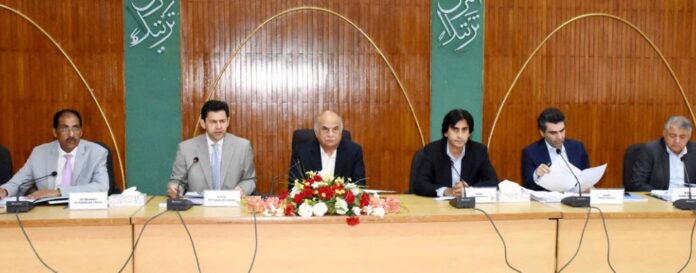The Central Development Working Party (CDWP) has approved nine projects worth Rs40 billion and recommended two projects worth Rs55.5 billion to the Executive Committee of the National Economic Council (ECNEC) for consideration, Radio Pakistan reported.
The CDWP meeting was held in Islamabad on Thursday with Planning Commission Deputy Chairman Mohammad Jehanzeb Khan in the chair.
Projects related to the energy sector that were approved on the occasion included the “Establishment of Regional Grid in Gilgit-Baltistan Phase-1” worth Rs4.95 billion; “220kv Nawab Shah Substation” worth 6.29 billion; “220kv Larkana New Substations” worth Rs6.44 billion; “Procurement of 220Kv Mobile Grid Station along with Emergency Recovery of System and 500kv Shunt Reactors for Emergency Services” worth Rs6.97 billion; and “220kv Swabi Substation” worth Rs6.34 billion.
Meanwhile, the CDWP approved a science and technology-related project titled “Pakistan Research Reactor-3” worth Rs4.67 billion. Another project of the same sector titled “Establishment of Campus at National University of Technology, Islamabad” worth Rs2.87 billion was also approved.
Among projects related to the health sector, the CDWP approved a project titled “Establishment of Safe Blood Transfusion Service Project Phase-II” worth 863.367 million, while recommending another titled “Strengthening and up-gradation of the Nursing and Midwifery sub-sector within the health sector of Pakistan” worth 27.9 billion to ECNEC.
A project titled “Establishment of Medical Device Development Center at National University of Science & Technology” worth Rs331.12 million was approved by CDWP, whereas a project titled “National Programme for Enhancing command area in Barani areas of Pakistan” worth Rs27.5 billion was recommended to ECNEC.
























